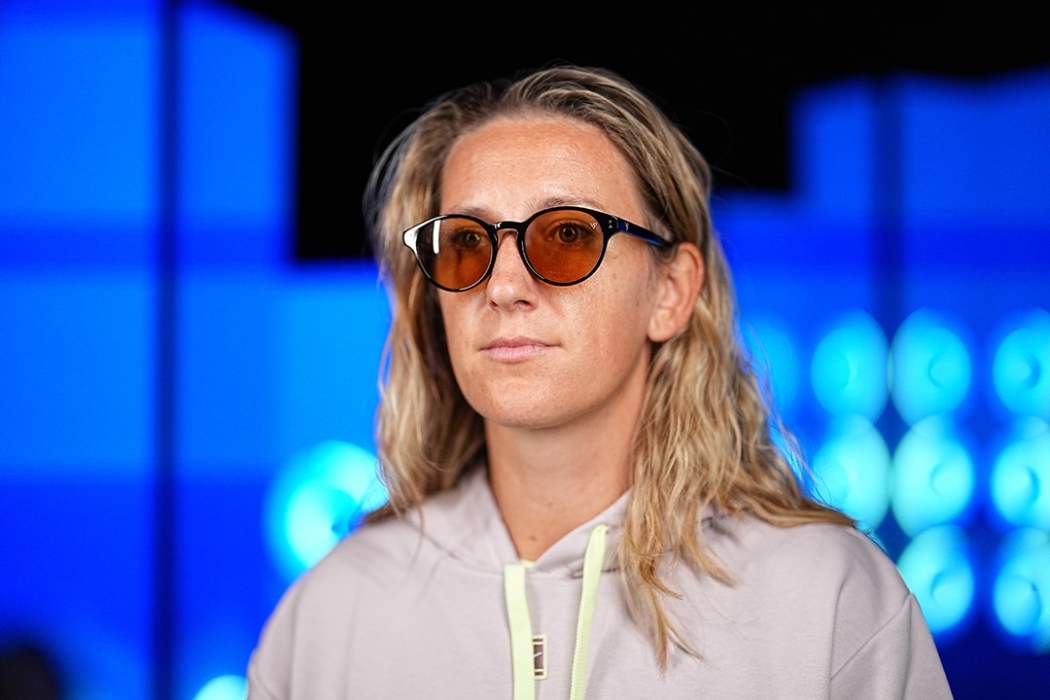You can read the full version of this feature in the upcoming August/September issue of Australian Tennis Magazine, bringing you in-depth coverage from Wimbledon plus features, instructional content and more. Visit the online shop to preview and order your copy.
A restrained silence falls on even Wimbledon’s grandest courts, a crowd Jelena Dokic remembers as unlike any other.
As a 16-year-old on her Wimbledon debut 25 years ago, the young Australian had experienced playing at the All England Club only a year prior when she reached the girls’ singles semifinals.
Never though had she played in the main draw at SW19, much less on No.1 Court against the world No.1, Martina Hingis.
“I liked playing on grass and I liked that it had a tradition. It was so respected,” Dokic recalled. “Even the crowd is different at Wimbledon. They are a little bit more kind of, I would say, subdued and respectful. So you kind of have a whole very different feel to any other Grand Slam.”
While the stage was a novelty, the world No.129’s opponent was an already familiar prospect.
In her Melbourne Park debut in January that year, the then 15-year-old wild card enjoyed a partisan home crowd during a straight-sets defeat to none other than the eventual triple champion, Hingis, in the Australian Open third round.
She presented an entirely different prospect for the world No.1 – still reeling from a Roland Garros final defeat to Steffi Graf – five months later.
She had quietly but confidently cruised through Wimbledon qualifying at Roehampton – then produced one of the greatest first-round Wimbledon boilovers of the Open era by winning 6-2 6-0.
There were tough outings to come that fortnight. She narrowly survived Katarina Studenikova and Anne Kremer, both in three sets, before a resounding straight-sets ledger against Grand Slam champion and ninth seed Mary Pierce.
In her maiden Grand Slam quarterfinal Dokic came up just short of the semifinals, falling to fellow qualifier Alexandra Stevenson.
PODCAST: Jelena Dokic on The Sit-Down
“If you told me that a year (after junior Wimbledon) I would make the quarters from qualifying, I wouldn't have believed you,” Dokic said. “I always had a special relationship with grass. I think because of the way that I played, I could use my game to my advantage… Those few little things that you learn from the legends of the game and the greats of the game really helped me early on.”
A year later, Dokic returned to the All England Club carrying added expectation and a swag of points to defend from her breakout run.
The draw had opened up favourably for the 17-year-old. A string of unseeded opponents – Greta Arn, Gala Leon Garcia, Brie Rippner and Kristina Brandi – were all dispatched with little concern, before Spanish southpaw Magui Serna (third seed Pierce’s conqueror) proved no match in the quarterfinals.
Dokic revealed it was her 6-4 6-2 vanquisher from the semifinals in 2000 who was her most difficult opponent.
“(Lindsay) Davenport was tough for me to play against. I never beat her,” she said. “My game did not match up well with hers. For me, it was a nightmare with her serve and just with the way that she played.”
MORE: 25 years on, Dokic reflects on Hingis upset and WTA golden era
In those days, the WTA awarded bonus points, depending on the ranking of the opponent beaten. Having defeated No.1 Hingis and No.9 Pierce a year prior meant Dokic had a pile of additional points to defend at Wimbledon in 2000.
Yet her semifinal result there cemented her as no flash in the pan.
“It was more about the fact that I had another great result at a Grand Slam,” she said. “I went one further and it was really satisfying to be able to not just go one better at Wimbledon, but just another proof that I can play at that level, especially on the big stage.”

